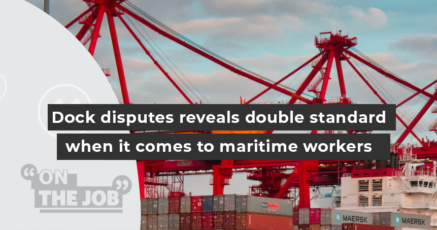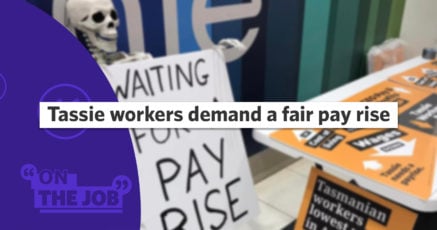Amidst the tumult of the COVID19 crisis in early 2020, Australian families were given a glimpse of what a transformation to their lives – universal and affordable early childhood education – could bring.
In April last year as Australians were reeling from the impact of the pandemic, the Morrison government announced its Early Childhood Education and Care Relief Package that assisted over a million families with free childcare.
It was a circuit breaker for those families who were facing a frighteningly uncertain future. It also revealed that providing universal, affordable early childhood education and care was possible – if the political will was there.
Sadly, a year on, the Morrison Government has retreated from that position. Affordable early childhood education is once again out of reach for struggling families, and workers in the sector continue to be overworked, undervalued, and underpaid.
August 31st was Equal Pay Day, and the news on closing the gender pay gap was dismal. The gap had extended out to 14.2% for full time employees, a rise of 0.8% over the past six months.
For workers in such a highly feminized workforce as Early Childhood Education, it is confirmation that they are going backwards despite the incredible work they do in trying circumstances.
ACTU President Michele O’Neil has consistently called for the implementation of an Early Childhood Education and Care Strategy that calls for the provision of appropriately funded, permanently free childcare, and a wage rise that reflects the true value of the work early childhood educators provide.
“This is a workforce that is overwhelmingly made up of women who are undervalued and underpaid. Just months ago, Scott Morrison was heaping praise upon early childhood educators and calling them essential.
“Childcare is a critical ingredient in terms of reducing unemployment because it’s such a huge barrier to women’s participation at work.”
“Educators are required to work through the pandemic, putting their own safety on the line while providing a vital service for families across the country,” Ms. O’Neil said.
In late August, the federal government announced additional funding for childcare centres dealing with lockdowns, but the Union representing Early Childhood Education and Care workers (ECEC), the United Workers Union (UWU), were unimpressed.
The UWU’s Director of ECEC, Helen Gibbons said the funding was vulnerable to exploitation.
“The entire sector has been calling for additional funding for centres to survive during lockdown restrictions. Today’s announcement is no doubt a welcome relief for many – but the fine print has no guarantees this funding will be used as intended.
“Once again, so-called ‘critical workers’ in early education have been treated like an afterthought. “By not linking funding to wages, the Government has failed to close loopholes we’ve all seen exploited by large greedy companies.“
Georgie Dent is the Executive Director of The Parenthood, a leading not-for-profit parent advocacy group. She told ‘On the Job’ that early childhood educators are still battling the odds as the pandemic drags on.
“Early educators have been the unsung heroes of this pandemic. They’ve never had the luxury of working from home, they have turned up to their workplaces and accepted the risk to their own health and safety to ensure that children can have access to the early education and care that they need.
“They have unfortunately not been repaid by the federal government.
“They have not been prioritised for vaccines, which is shameful in my view, given that they are quite literally on the frontline.”
The early education workforce was the only workforce that was taken off JobKeeper prematurely, and the circumstances of the various lockdowns have also placed a lot of pressure on educators because they’ve placed pressure on providers.”
Ms. Dent believes its time that the rhetoric from Government’s around the importance of early childhood education was matched by a commitment to providing universal access, and supporting the sector’s workforce by delivering well paid, stable jobs for the educators and carers doing the work.
“There’s a huge disconnect in terms of the critical function that early educators fulfil, and the way that we value and pay for that early education and care.
“I think 2020 showed Australia just how essential early education care is.
“If you don’t have early learning, if you don’t have somewhere for children to be looked after, then the nurses who we need to be working in hospitals and the delivery drivers that we need to be getting food around, all of those essential jobs that the community cannot go without could not be undertaken if parents don’t have somewhere safe and secure and appropriate for their children to be cared for.
“This is a workforce that is absolutely dominated by women, it is woefully underpaid. There’s a huge disparity between what early educators get paid and what male dominated workforces get for similar qualifications.”
The Executive Director of the Parenthood sees this issue becoming hotly contested ground at the next federal election.
“I think that universal access to high quality, early education and care that is delivered by an appropriately valued, paid and supported workforce should be the deciding issue at the next election.”








SHARE:
Why are we waiting on early education and childcare?